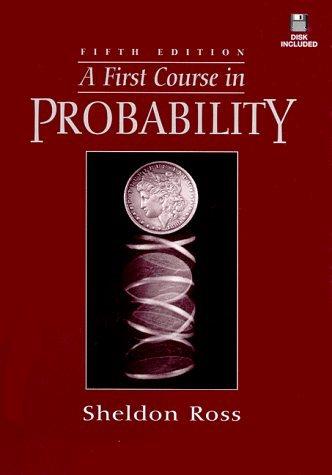6. In the text we noted that $$E[sum_{i=1}^{n} X_i] = sum_{i=1}^{n} E[X_i]$$ when the X, are all...
Question:
6. In the text we noted that
$$E[\sum_{i=1}^{n} X_i] = \sum_{i=1}^{n} E[X_i]$$
when the X, are all nonnegative random variables. Since an integral is a limit of sums, one might expect that
$$E[\int_{0}^{∞} X(t) dt] = \int_{0}^{∞} E[X(t)] dt$$
whenever X(1), 0, are all nonnegative random variables; and this result is indeed true. Use it to give another proof of the result that, for a nonnegative random variable X,
$$E[X) = \int_{0}^{∞} P(X>1) dt$$
HINT: Define, for each nonnegative t, the random variable X(1) by
$$X(t) = \begin{cases}
1 &\text{if } t < X\\
0 &\text{if } t \ge X
\end{cases}$$
Now relate X(1) dt to X.
Fantastic news! We've Found the answer you've been seeking!
Step by Step Answer:
Related Book For 

Question Posted:






